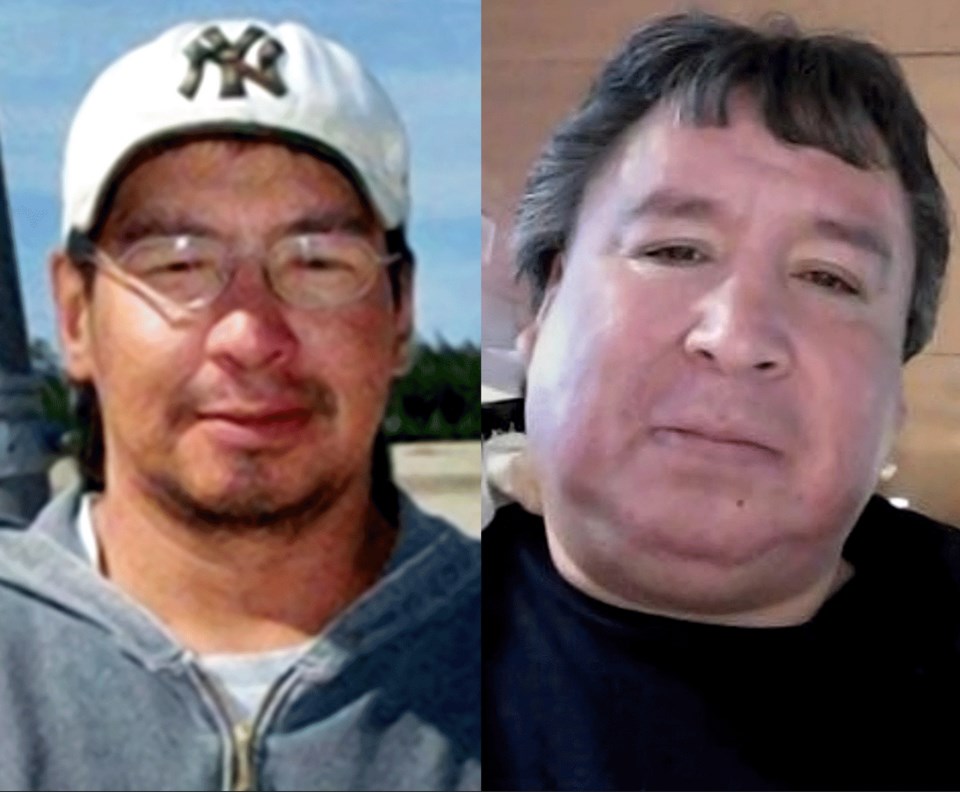THUNDER BAY – A Thunder Bay Police officer testifying on day three of the inquest into the deaths of two Indigenous men while in police custody expressed remorse over his role in both incidents Friday.
Const. Ryan Krupa, who was involved in the arrests of both Don Mamakwa and Roland McKay, acknowledged he is in a position of privilege and said the decisions he made do not reflect the person he is today.
“I just want you to know it genuinely breaks my heart," he said. "Back then it was decisions made that wasn’t me. I was ignorant back then and I’m trying to change."
“We are clearly learning throughout this process a lot of errors, a lot of things that could be done differently, and I acknowledge I was part of that. If I could go back, are there things I would have done differently, of course. Is this something that shouldn’t be how it is, absolutely.”
Krupa said he recognizes he made mistakes in both situations and that he should have done better.
“From the bottom of my heart, I want you to know I will do what I can to be a better person, a better police officer, a better citizen,” he said. “It will be an experience I will continue to go through. I want to apologize for the situation and my involvement.”
The coroner’s inquest is examining the circumstances surrounding the deaths of Mamakwa and McKay, who died in separate incidents while in the custody of the Thunder Bay Police Service.
Mamakwa, 44, of Kasabonika First Nation, died on Aug. 3, 2014 at the force's Balmoral Street headquarters.
McKay, 50, of Big Trout Lake, who was also Mamakwa’s uncle, died while in custody on July 20, 2017.
An investigation by the Special Investigations Unit found no grounds to charge any of the involved officers in either incident.
The past two days of testimony in the inquest, expected to last 17 days and include 31 witnesses, have focused on the circumstances surrounding Mamakwa’s death after his arrest on the afternoon of Aug. 2, 2014 in the Donald and Brodie Street area.
Police and paramedics responded to reports of an unconscious male in the area and, according to testimony on Thursday by a paramedic, police waved them off because Mamakwa was standing on his own and did not appear to be experiencing any shortness of breath.
Mamakwa was arrested for public intoxication and breaching a probation order not to consume alcohol.
Krupa testified that he believed paramedics had given the all clear to transport Mamakwa to police headquarters, even though he indicated he wanted to go to the hospital.
While being processed at police headquarters, Krupa told Mamakwa he was too intoxicated to speak to a lawyer.
Peter Keen, counsel on behalf of the coroner, asked Krupa if an individual is too intoxicated to speak to a lawyer, should they not be transported to hospital.
Krupa replied it goes case by case.
“I can’t say definitively,” he said. “In this circumstance, I decided that wasn’t the case.”
Asha James, counsel for the Mamakwa and McKay families, also asked why Mamakwa wasn't provided an opportunity to speak with a lawyer.
“If you had given Mr. Mamakwa access to a lawyer, it would have been another individual to advocate for him that he needs to go to the hospital,” she said.
“It could have been, yes,” Krupa agreed.
The officer said he'd dealt with Mamakwa on several other occasions and believed his behaviour was more uncooperative on Aug. 2 because he was placed under arrest.
“It was an uncooperative engagement from what I recall from the start,” he said, adding he believed that also related to his level of intoxication.
“I feel like now everything crosses my mind more. I try to analyze every aspect further than I would have back then, going through this situation. I’m more aware.”
While Krupa denied having any racial bias toward Indigenous people or Mamakwa, he acknowledged there may have been an unconscious bias. However, he added the situations police officers confront can sometimes result in those biases.
“When we are going into situations and unknown situations, we're trying to gain an element of knowing what we're walking into,” he said. “If I'm going into a specific area, I'm going to think what other calls I have dealt with there, so I suppose that could be a bias – trying to fill in the blanks to deal with the call more efficiently and keep myself safe.”
Asked by James if he would do anything differently today, Krupa said he doesn't believe Mamakwa would have ended up at police headquarters, but stated it was difficult to say with certainty.
“Every call I've been to since, when an individual makes mention of wanting to go to the hospital, they go to the hospital,” he said.
Addressing recommendations that could avoid similar outcomes in the future, Krupa pointed to a need for collaborative training between all first responders including police, fire, and paramedic, and a review of internal policing policies with officers.
“There’s never a downside with more training,” he said.
Const. Jeny Bailot, who was Krupa’s partner on Aug. 2, 2014, also began her testimony on Friday and will continue on Monday.
